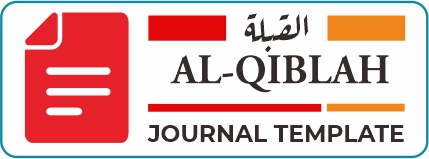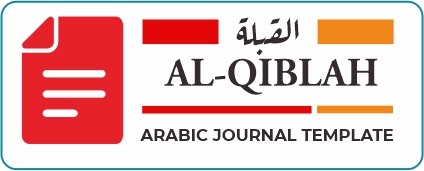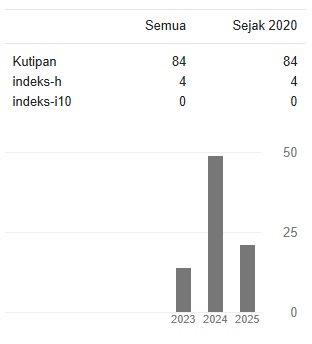Konsep Pemberdayaan (Tamkīn) Perspektif Al-Qur’an
The Concept of Empowerment (Tamkīn) in the Perspective of the Qur'an
DOI:
https://doi.org/10.36701/qiblah.v4i3.2130Keywords:
Empowerment, tamkīn, Al-Qur’anAbstract
This research aims to examine the term tamkīn in the Al-Qur'an, identify its categorization, and analyze its function at a practical level. This research is in the nature of a library research, namely collecting data sourced from libraries (both individual and institutional libraries), because the data studied is in the form of books, manuscripts or magazines sourced from the library treasury. The results of this research show several things. First, the term tamkīn in the Al-Qur'an has several meanings, namely the granting of power or kingdom, position at the side of the ruler, preparation for attaining power, granting worldly favors, steadfastness in religion, and stability and victory. Second, the division of tamkīn in the Al-Qur'an consists of two types, namely maddi and artiwi. tamkīn maddi relates to giving strength in the form of property, wealth, or resources to achieve economic and social independence, while tamkīn artiwi focuses more on spiritual, mental, or moral strength, which includes the quality of faith and the ability to carry out religious and social obligations. Third, the concept of tamkīn in everyday life leads to empowerment in various aspects, such as economic, social, spiritual, educational and leadership. Allah SWT. through His revelation, it provides instructions for His people to pay attention to the principles of justice, prosperity and progress.
Downloads
References
Badan Pusat Statistik. Indikator Kemiskinan di Indonesia 2023. Jakarta: Badan Pusat Statistik, 2023.
Capra, M. Umer. The Islamic Vision of Development in the Light of Maqasid al-Shari’ah. Kuala Lumpur: International Islamic University Malaysia, 2008.
al-Fayruzabadi, Mujir al-Din Abu al-‘Abbas Ahmad ibn Ali. Qāmūs al-Muḥīṭ. Jilid 1; Beirut: Dar al-Fikr, 1995.
Ibn Manzur, Muhammad bin Mukarram. Lisan al-Arab. Jilid 13; Beirut: Dar al-Ma'rifah, 2000.
Kementrian Agama Republik Indonesia. Al-Qur’an dan Terjemahnya. Jakarta Timur: Ummul Quro, 2017.
Lewis, Oscar. The Culture of Poverty. New York: Random House, 1966.
Lazim, Muhammad. Konsep Materi Pendidikan Akhlak Anak Didik dalam Perspektif Islam. Semarang: IAIN Walisongo, 2011.
Al-Qaradawi, Yusuf. Fiqh al-Zakat. Beirut: Dar al-Qalam, 2000.
As-Sa’di, Abdurrahman bin Nasir. Tafsir al-Sa'di. Beirut: Dar al-Salam, 2005.
Sanrego, Yulizar D. Fiqih Tamkin Membangun Modal Sosial Dalam Mewujudkan Khairu Ummah. Jakarta: Qisthi Press, 2016.
Siddiqi, Muhammad Nejatullah. Riba, Bank Interest and the Rationale of Its Prohibition. Kuala Lumpur: Islamic Book Trust, 2001.
Sugiyono. Metode Penelitian Pendidikan: Pendekatan Kuantitatif, Kualitatif, dan R&D. Bandung: Alfabeta, 2014.
Al-Tabari, Muhammad bin Jarir. Jami' al-Bayan fi Tafsir al-Qur'an. Jilid 20; Beirut: Dar al-Ma'rifah, 1999.
World Bank. Poverty and Shared Prosperity 2020: Reversals of Fortune. Washington, D.C.: World Bank, 2020.



 FOCUS AND SCOPE
FOCUS AND SCOPE EDITORIAL TEAM
EDITORIAL TEAM












